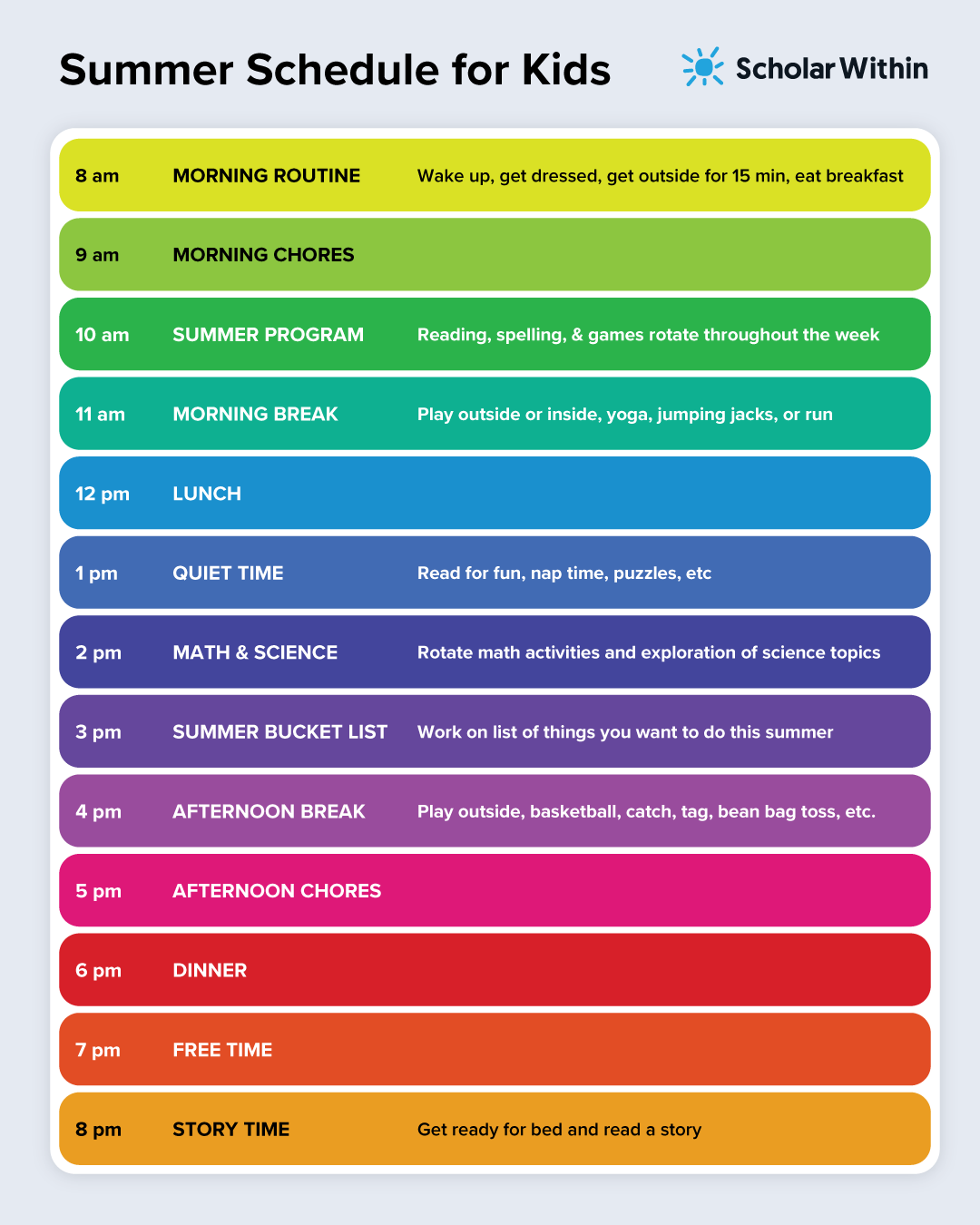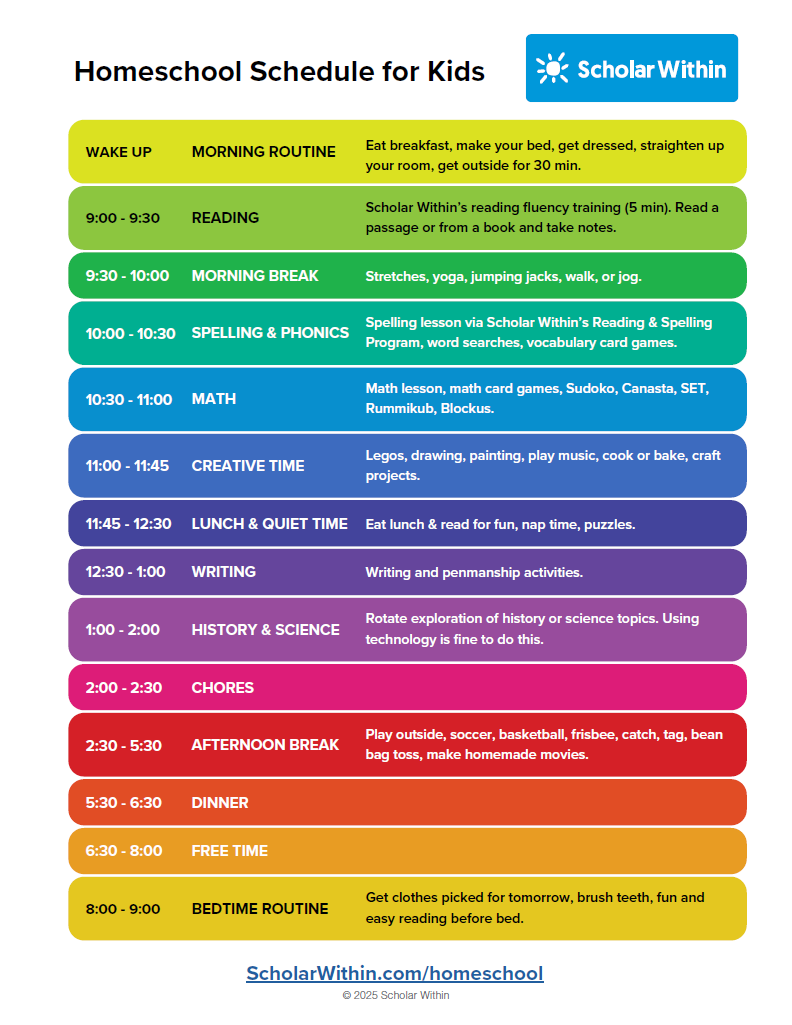How are vocabulary and reading connected? To understand what you have read, you need to know the meaning of the words you are reading. Research tells us that vocabulary knowledge, including both oral and written vocabulary, is critically important for a child’s success in school (Kamil et al., 2008). That being said, each person has…
The Learning Blog 👋
Top Things to Look for in a Summer Reading Program
Note: If you are already a Scholar Within Reading & Spelling Program member, you have access to the same material as in the summer program. Table of Contents The struggle is real when it comes to keeping your K-8th graders entertained and educated during the summer months! After all, there’s only so much Minecraft, swimming,…
Reading Comprehension Strategies
Reading comprehension strategies are a great way to improve your reading comprehension skills. Reading comprehension is the ability to understand, analyze, synthesize, and use what you have read. When you use specific strategies, you make it easier to understand and remember what you have read. “Comprehension is now viewed as a much more complex process…
Top 6 Reading Fluency Activities
Reading fluency is the speed or rate of reading without conscious attention to the mechanics of reading. A fluent reader has the ability to read and understand words automatically. They are able to more easily comprehend complete sentences and entire reading selections.
Sleeping Tips and Solutions for Sleep Problems
How to Adjust to the Time Change Table of Contents Overview Sleep problems can affect all of us and are especially difficult with the time change. Sleep is critical for our minds, memory, learning, and development. While sleeping, your brain organizes information, makes connections, and even solves problems. Sleeping tips and solutions can help you…
10 Spelling Activities for Any Word List
Looking for a method to the madness of learning to spell? Take a look at Scholar Within’s spelling program. We teach spelling through spelling patterns with systematic step-by-step video lessons and hands-on activities. Learn More Spelling activities can make spelling practice a bit more fun and can help with spelling problems. Spelling problems can happen because…
Top 10 Educational Games for Kids (and Adults!)
The best educational games for kids are sometimes the games that don’t even seem like they are educational. The games are fun and engaging. Each player can make substantial choices throughout the game. The gameplay makes you think. Kids and even adults become more engaged in games that have greater levels of choice than those…
Tactile-Kinesthetic Learning
What is tactile-kinesthetic learning? We all learn through hearing, seeing, and doing. Tactile-kinesthetic learning is the ability to make sense of the world through touch, movement, and doing. It’s the ability to identify, organize, and interpret the environment through touch and movement. Tactile and kinesthetic learners are able to understand and remember information better when…
Goal Planning for the New School Year
Executive Function, Goal Planning, and School Success Goal planning is a great way to help set up your year for success. This is also where executive function comes into play. Executive function is all about planning, organizing, strategizing, paying attention to, and remembering details. Setting and writing your goals down is the first step. When…
Reading and Spelling: Decoding and Encoding
How are Reading and Spelling Connected? Reading and spelling are two sides of the same coin. In order to do one part well, you need the other part. In order to read, you need to decode (sound out) words. In order to spell, you need to encode words. In other words, to spell, you need…













